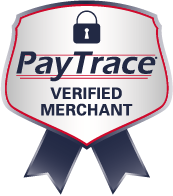The following is an excerpt from our eBook with HubSpot: “The Essential Step-by-Step Guide to Internet Marketing” (See the end of this post on how to download the full version of our book.)
Creating an Effective Keyword Strategy
What are Keywords?
Keywords are words or phrases (phrases are known as “long-tail” keywords) that someone enters into the search box on search engines like Bing or Google or on social media sites like Twitter, Facebook and LinkedIn.
Why Build a Keyword Strategy?
As you know, most people now begin learning about and finding business through search engines. Business owners have been taking advantage of this phenomenon for the last decade or so.
In order to benefit from this use of keywords as a business owner, you need to be sure you have “optimized” your website to rank well with the keywords your prospects are likely using to find products and services like yours.
Use Keywords Tools
While it requires some research to determine what keywords your prospects and clients are likely using to find the products and services you offer, it is not difficult. Tools such as Google’s Keyword tool and Hubspot’s Keyword tool offer simple ways to narrow down what keywords would work best for you.
As a business professional, you should make sure the right people are finding your business online. In this post, you will learn how to define which keywords will maximize your potential to draw in relevant traffic from search engines.
Make it a Regular Activity
Researching your best keywords should be a regular activity. The positive results you achieve in terms of page rank and increased traffic to your site are undeniable. A well-researched keyword strategy will help you increase natural traffic to your site and reduce the money spent on pay-per-click advertising.
How to Create a Keyword Strategy
1. Create a list of 5-10 long-tail keywords that apply to your business.
Put yourself in the position of someone that may not be familiar with your business but is searching for help or information about your products or services. What words would they/you put in the search box to find that information? Those words are going to be your keywords.
2. Choose phrases based on their “relevance” and levels of “difficulty.”
 Very general words such as “marketing” or “lawyer” or “real estate” are very competitive because they are very general. They will return millions of possible answers from Google or Bing and make lousy keywords for your business because they are very difficult (impossible) to rank high on the page for them. A much better approach is to identify those phrases related to your business niche, such as “Inbound Marketing Denver,” or “Highlands Ranch homes.”
Very general words such as “marketing” or “lawyer” or “real estate” are very competitive because they are very general. They will return millions of possible answers from Google or Bing and make lousy keywords for your business because they are very difficult (impossible) to rank high on the page for them. A much better approach is to identify those phrases related to your business niche, such as “Inbound Marketing Denver,” or “Highlands Ranch homes.”
You should find a balance between relevance and difficulty. Choose between five and ten keywords that match your business well.
3. Design and optimize your website around your keywords
Once you have identified what keyword phrases would work best for your company, use those phrases throughout your website as appropriate. The search engines will catalog those frequent phrases in their database and present the searcher with the best options for that phrase, which if you’ve done it right, will include your company near the top!
Download the full verison of our eBook: “The Essential Step-by-Step Guide to Internet Marketing.”
Have a question or an opinion? Share it with us below. Or call us at (303) 357-5757 or email us a dbc@dbcdigital.com



